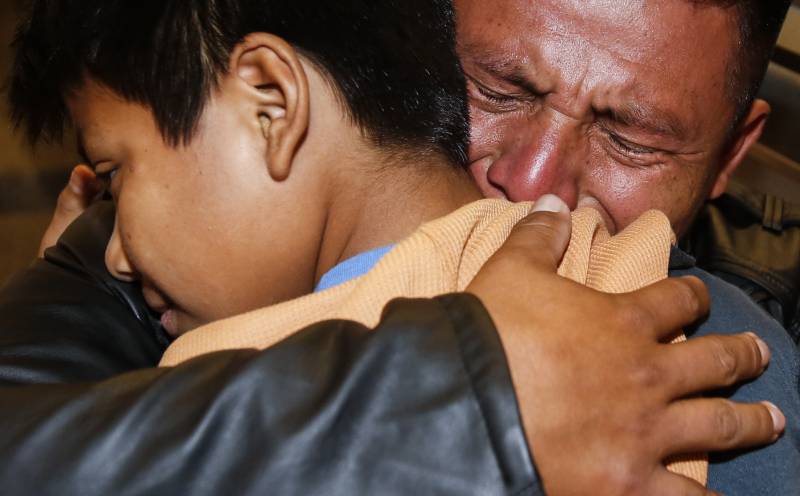Despite a federal judge’s order that the government reunite families who had been separated at the U.S.-Mexico border under the Trump administration’s “zero tolerance” migration policy, the parents of 545 children still can’t be found, according to a court document filed Tuesday by the U.S. Justice Department and the American Civil Liberties Union.
Thousands of families were separated under the policy before the Trump administration ended the practice in 2018. The ACLU successfully sued the government, winning a court order to reunite families. Thousands of parents and children were reunited within weeks.
But about 1,000 families who had been separated in a pilot program in 2017 were not covered by the initial court order — reunification of this group was ordered only last year. The passage of time has made finding both parents and children more difficult.


9(MDAxOTAwOTE4MDEyMTkxMDAzNjczZDljZA004))
